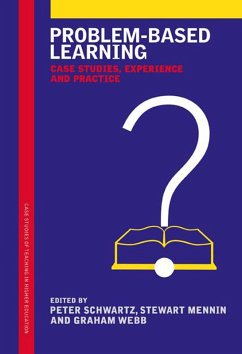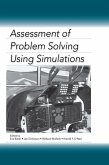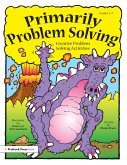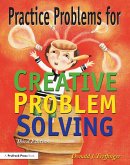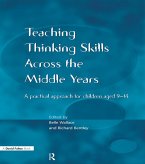Problem-based Learning (eBook, PDF)


Alle Infos zum eBook verschenken

Problem-based Learning (eBook, PDF)
- Format: PDF
- Merkliste
- Auf die Merkliste
- Bewerten Bewerten
- Teilen
- Produkt teilen
- Produkterinnerung
- Produkterinnerung

Hier können Sie sich einloggen

Bitte loggen Sie sich zunächst in Ihr Kundenkonto ein oder registrieren Sie sich bei bücher.de, um das eBook-Abo tolino select nutzen zu können.
Problem-based learning (PBL) is becoming widely used in higher education. Popular in the medical sciences, PBL is now finding applications beyond - in engineering, sciences and architecture - and is widely applicable in many fields. It is a powerful teaching technique that appeals to students and educators alike. This book will be of great value to those who want to improve their use of PBL and for those who want to learn more and implement it. It provides compelling accounts of experiences with PBL from eight countries including the UK, US, Canada, Australia and New Zealand, and gives readers…mehr
- Geräte: PC
- mit Kopierschutz
- eBook Hilfe
- Größe: 5.16MB
![Assessment of Problem Solving Using Simulations (eBook, PDF) Assessment of Problem Solving Using Simulations (eBook, PDF)]() Assessment of Problem Solving Using Simulations (eBook, PDF)47,95 €
Assessment of Problem Solving Using Simulations (eBook, PDF)47,95 €![Primarily Problem Solving (eBook, PDF) Primarily Problem Solving (eBook, PDF)]() Diane DrazePrimarily Problem Solving (eBook, PDF)14,95 €
Diane DrazePrimarily Problem Solving (eBook, PDF)14,95 €![Practice Problems for Creative Problem Solving (eBook, PDF) Practice Problems for Creative Problem Solving (eBook, PDF)]() Donald J. TreffingerPractice Problems for Creative Problem Solving (eBook, PDF)15,95 €
Donald J. TreffingerPractice Problems for Creative Problem Solving (eBook, PDF)15,95 €![Using and Applying Mathematics at Key Stage 1 (eBook, PDF) Using and Applying Mathematics at Key Stage 1 (eBook, PDF)]() Elaine SellersUsing and Applying Mathematics at Key Stage 1 (eBook, PDF)29,95 €
Elaine SellersUsing and Applying Mathematics at Key Stage 1 (eBook, PDF)29,95 €![Towards Rational Education (eBook, PDF) Towards Rational Education (eBook, PDF)]() Demetris KatsikisTowards Rational Education (eBook, PDF)42,95 €
Demetris KatsikisTowards Rational Education (eBook, PDF)42,95 €![Contextualizing Inclusive Education (eBook, PDF) Contextualizing Inclusive Education (eBook, PDF)]() Contextualizing Inclusive Education (eBook, PDF)49,95 €
Contextualizing Inclusive Education (eBook, PDF)49,95 €![Teaching Thinking Skills across the Middle Years (eBook, PDF) Teaching Thinking Skills across the Middle Years (eBook, PDF)]() Teaching Thinking Skills across the Middle Years (eBook, PDF)39,95 €
Teaching Thinking Skills across the Middle Years (eBook, PDF)39,95 €-
-
-
Dieser Download kann aus rechtlichen Gründen nur mit Rechnungsadresse in A, B, BG, CY, CZ, D, DK, EW, E, FIN, F, GR, HR, H, IRL, I, LT, L, LR, M, NL, PL, P, R, S, SLO, SK ausgeliefert werden.
- Produktdetails
- Verlag: Taylor & Francis eBooks
- Seitenzahl: 193
- Erscheinungstermin: 11. Oktober 2013
- Englisch
- ISBN-13: 9781135382902
- Artikelnr.: 39703527
- Verlag: Taylor & Francis eBooks
- Seitenzahl: 193
- Erscheinungstermin: 11. Oktober 2013
- Englisch
- ISBN-13: 9781135382902
- Artikelnr.: 39703527
- Herstellerkennzeichnung Die Herstellerinformationen sind derzeit nicht verfügbar.
proposal to adopt Problem-based learning (PBL) within a curriculum 2. No
Money Where Your Mouth Is: Resource intensity of PBL; obtaining faculty
tutors in the face of competing demands 3. Into the Lion's Den: Introducing
PBL into a combined clinical teaching attachment; dealing with
organizational difficulties 4. Lost in the Mêlée: Converting a traditional
curriculum to a 'hybrid' PBL curriculum; reducing 'overload' in the
curriculum 5. But What if They Leave with Misinformation?: Convincing
skeptical faculty about 'self correction' mechanisms in PBL groups 6. Mixed
Models and Mixed Messages: Implementing PBL during periods of
administrative transition; dealing with the challenges facing students in a
new curriculum which only some courses use PBL 7. Overcoming Obstacles:
Achieving virtually integrated PBL curriculum in a traditional,
departmentally organized medical school 8. Forward from the Retreat: Acting
on a proposal to introduce PBL into a long-established, traditional medical
curriculum 9. Too Little, Too Late?: The importance of group- and
self-evaluation and timely feedback in PBL tutorials 10. Not More PBL:
Responding to clinical students' boredom with paper-based PBL 11. Why Do
They Ignore It?: Getting Students in a PBL curriculum to pay attention to
important learning issues that do not appear to them to be central 12.
Redesigning PBL: Resolving the Integration Problem: Translating a PBL model
from one discipline to another 13. Why Does the Department Have Professors
if They Don't Teach?: Confusion about the meaning of 'self-directed
learning' - addressing the confusion and minimizing its effects when
implementing PBL 14. Faculty Development Workshops: A 'Challenge' of
Problem-Based Learning? 15. Dealing with difficulties during faculty
development workshops on PBL resulting from participants' different
backgrounds and expectations 16. The Students Did That?: Inducting faculty
members and students into a new PBL curriculum 17. Mature Students?:
Difficulties in PBL process when 'mature' students take control of groups
18. To Admit or Not to Admit? That is the Question...: Selecting Students
for PBL programmes; reconciling differing views among students of the
nature and goals of PBL 19. Why Aren't They Working?: Responding to poorly
functioning tutorial groups in PBL 20. I Don't Want to Be a Groupie:
Dealing with a student who fails a PBL unit because of poor participation
in the group 21. Reflecting on Assessment: Choosing a method that assesses
both the knowledge gained and the learning process of PBL 22. Assessable
Damage: Dealing with factors causing a student's hostile reaction to
assessment in a PBL course 23. They Just Don't Pull Their Weight: Assuring
individual accountability of students in small tutorless PBL groups
Further Reading
Index
proposal to adopt Problem-based learning (PBL) within a curriculum 2. No
Money Where Your Mouth Is: Resource intensity of PBL; obtaining faculty
tutors in the face of competing demands 3. Into the Lion's Den: Introducing
PBL into a combined clinical teaching attachment; dealing with
organizational difficulties 4. Lost in the Mêlée: Converting a traditional
curriculum to a 'hybrid' PBL curriculum; reducing 'overload' in the
curriculum 5. But What if They Leave with Misinformation?: Convincing
skeptical faculty about 'self correction' mechanisms in PBL groups 6. Mixed
Models and Mixed Messages: Implementing PBL during periods of
administrative transition; dealing with the challenges facing students in a
new curriculum which only some courses use PBL 7. Overcoming Obstacles:
Achieving virtually integrated PBL curriculum in a traditional,
departmentally organized medical school 8. Forward from the Retreat: Acting
on a proposal to introduce PBL into a long-established, traditional medical
curriculum 9. Too Little, Too Late?: The importance of group- and
self-evaluation and timely feedback in PBL tutorials 10. Not More PBL:
Responding to clinical students' boredom with paper-based PBL 11. Why Do
They Ignore It?: Getting Students in a PBL curriculum to pay attention to
important learning issues that do not appear to them to be central 12.
Redesigning PBL: Resolving the Integration Problem: Translating a PBL model
from one discipline to another 13. Why Does the Department Have Professors
if They Don't Teach?: Confusion about the meaning of 'self-directed
learning' - addressing the confusion and minimizing its effects when
implementing PBL 14. Faculty Development Workshops: A 'Challenge' of
Problem-Based Learning? 15. Dealing with difficulties during faculty
development workshops on PBL resulting from participants' different
backgrounds and expectations 16. The Students Did That?: Inducting faculty
members and students into a new PBL curriculum 17. Mature Students?:
Difficulties in PBL process when 'mature' students take control of groups
18. To Admit or Not to Admit? That is the Question...: Selecting Students
for PBL programmes; reconciling differing views among students of the
nature and goals of PBL 19. Why Aren't They Working?: Responding to poorly
functioning tutorial groups in PBL 20. I Don't Want to Be a Groupie:
Dealing with a student who fails a PBL unit because of poor participation
in the group 21. Reflecting on Assessment: Choosing a method that assesses
both the knowledge gained and the learning process of PBL 22. Assessable
Damage: Dealing with factors causing a student's hostile reaction to
assessment in a PBL course 23. They Just Don't Pull Their Weight: Assuring
individual accountability of students in small tutorless PBL groups
Further Reading
Index
